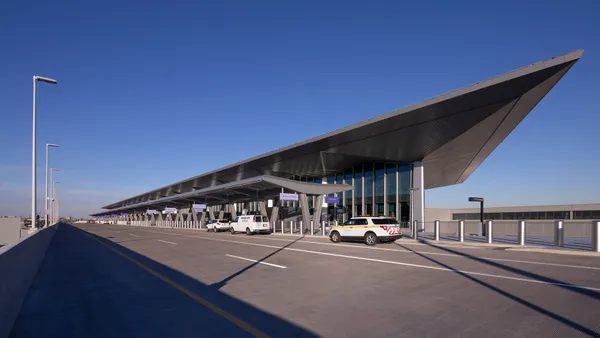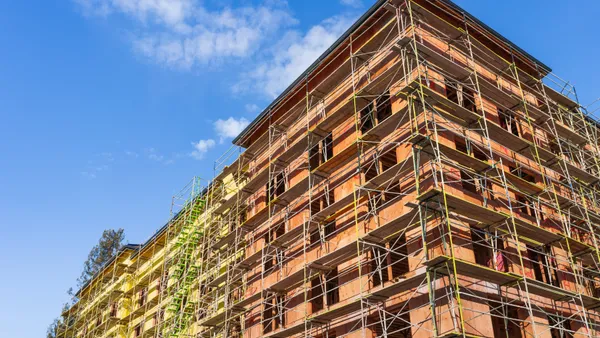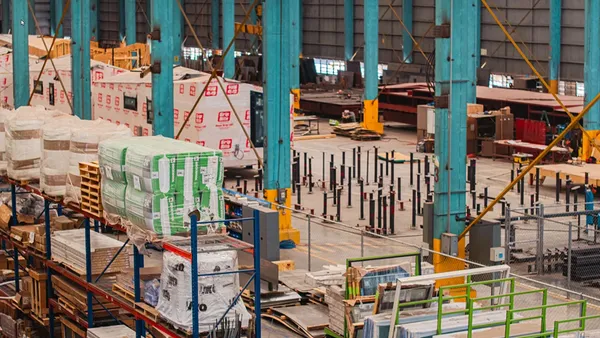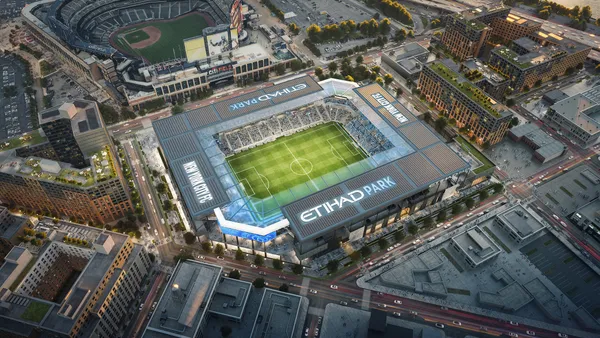Dive Brief:
- Nonresidential construction starts in the Dallas-Fort Worth area plummeted 44% in August compared to the same month last year, according to a Dallas Morning News analysis of the most recent Dodge Data & Analytics information. On a year-to-date basis, the region's commercial starts are down 27% compared to the first eight months of 2017.
- In contrast, the Dallas-Fort Worth residential market was up 24% from August of last year and 10% higher than year-to-date 2017 figures. However, the strong apartment and single-family home markets weren't enough to keep total construction activity from sinking 7% for the period of January through August.
- Despite the contraction in construction activity, the Dallas area still added 13,600 construction jobs from August 2017 to August 2018, according to the Associated General Contractors of America — a figure second only to Houston's 28,900.
Dive Insight:
In 2017, Dallas laid claim to a record level of new starts, at a value of $22 billion. From January 2018 to May 2018, Dallas had the second-highest dollar value of construction starts — $8.8 billion — in the U.S. Only New York City exceeded that level with $15 billion. Those 2018 numbers, however, still represented a decrease in construction activity for Dallas-Fort Worth, a decline of about 30% for the nonresidential segment and 1% for residential as of May 2018.
In fact, more than half of the most active construction markets in the U.S. saw similar declines as of May, particularly San Francisco, which underwent a near-50% drop in the value of starts.
In August, the value of new construction starts fell 9% from July to a seasonally adjusted rate of nearly $742 billion, driven by a 19% drop in nonresidential and a 7% decline in residential. Saving overall construction starts for August from falling further was a 6% uptick in the nonbuilding segment, which includes public works projects.
Starts figures, according to Robert Murray, Dodge chief economist, can be impacted significantly by the existence, as well as the absence, of large projects. But the good news for contractors specializing in commercial construction is that, according to Murray, the fundamentals that made for a strong market are still holding up, and institutional funding for projects like new schools hasn’t tightened up.
However, it's obvious from the AGC's employment data that the amount of construction activity is enough to keep construction companies in metros like Dallas and Houston busy since contractors added more than 40,000 jobs there this year between the two. Other areas still experiencing healthy increases in construction employment this year include Atlanta and Phoenix.














